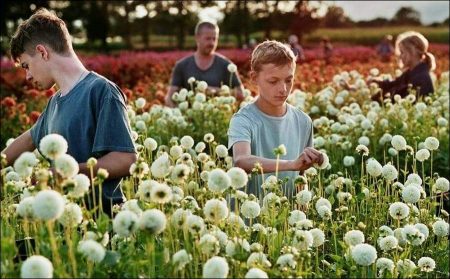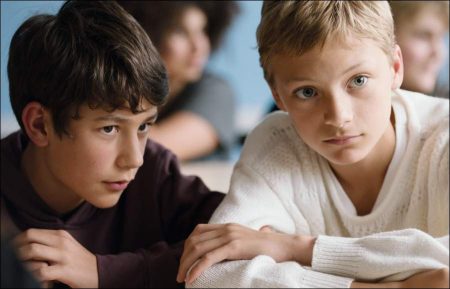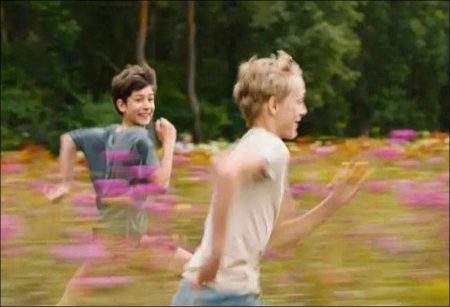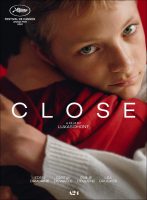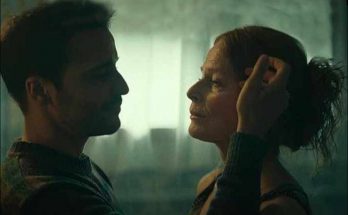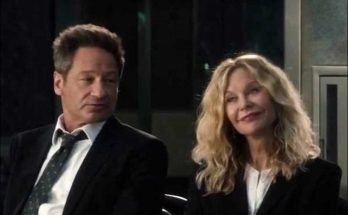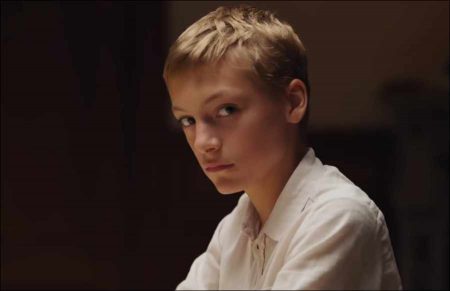
Close movie storyline. The intense friendship between two thirteen-year old boys Leo and Remi suddenly gets disrupted. Struggling to understand what has happened, Leo approaches Sophie, Remi’s mother. Close is a film about friendship and responsibility.
Leo and his best friend Rémi were like brothers for most of their summer, maybe their lives. They would sleep in the same bed together, cuddle, play, just everything two best friends would do. That is until the first day of a new school term, and one girl’s assumption they are a couple, paired with one of their classmates, a boy, calls Leo a f****t, leading Leo to distance himself from Remi.
In some ways, it seems like the usual progression of middle school. Two close friends splitting apart and finding other people and interests. However, Leo going back and forth between closeness and isolating himself from Remi causes havoc on Remi’s mental and emotional state. Thus leading to something drastic happening that haunts Leo.
Close is a 2022 French-language Belgian coming-of-age drama film directed by Lukas Dhont, and written by Dhont and Angelo Tijssens, reteaming after their first feature film Girl (2018). The film stars Eden Dambrine, Gustav de Waele, Emilie Dequenne and Léa Drucker.
Close premiered at the Cannes Film Festival on 26 May 2022 to critical acclaim and the Grand Prix. The film was released by Diaphana Distribution in France on 1 November 2022 and by Lumière in Benelux on 2 November. On 16 September 2022, the film was announced as Belgium’s submission for the Academy Award for Best International Feature Film at the 95th Academy Awards.
Film Review for Close
Director Lukas Dhont has followed up his film Girl with the ‘tear-jerkingly sweet and tender’ buddy story Close, writes Nicholas Barber.
If there was a prize for prompting the most sniffles and sobs at the Cannes Film Festival, the runaway winner would be Close, a devastating Belgian coming-of-age drama co-written and directed by Lukas Dhont. Its heroes, Léo (Eden Dambrine) and Rémi (Gustav de Waele), could be the dictionary definition of youthful freedom and possibility. First seen racing through the idyllic commercial flower fields owned by Léo’s family, these grinning, glowing, skinny 13-year-olds appear to have inexhaustible energy and boundless joy. Best of all, they have each other.
As close as brothers, they’re happy to use one another as pillows as they nap on the ground in the summer sunshine, and at night, they’re happy to sleep side by side in Rémi’s bed, where Léon whispers improvised fables about duckling and lizards. Their affection is tear-jerkingly sweet and tender – and that’s just in the film’s opening minutes. Is there anything more to their relationship than platonic friendship? You might think so when you see Rémi practising the oboe, as Léo gazes at him with wide-eyed adoration, but the question has never bothered either of them.
The idyll can’t last. The boys enrol in a new school, and Dhont’s shot of them trying to hide their nerves in the middle of a crowded playground is an omen that life will never be as simple again. The next omen comes when Léo casually rests his head on Rémi’s shoulder in class – and a classmate notices. Dhont is too subtle to have Léo and Rémi become the victims of violent homophobic bullying.
But some girls ask Léo if he and Rémi are “together”, and a boy shoves him in the playground. That’s all the warning that Léo needs. He doesn’t tell Rémi or his family about his concerns, but within days, he is nodding along to debates about Ronaldhino, he has stopped wearing the white jumper that made him look a baby lamb, and he has demonstrated his macho athleticism by taking up ice hockey, a sport in which his twig-like limbs are bulked up by pads.
Dhont’s first film, Girl, told the story of a young trans woman who yearned to have gender-reassignment operation while training to be a ballerina. Its depiction of adolescent awkwardness was so astute, though, that anyone could recognise its heroine’s discomfort, trans or not. Likewise, Close is superficially about the fear of being thought of as gay, but it’s more generally about what we all to have suffer when we grow up: coping silently with pain, inflicting that pain on others, warping our characters to suit the crowd, and realising that all types of instinctive intimacy now have to be labelled. Léo can still put his arm around his brother, because fraternal love is easy for society to categorise and accept. But to lie with his head on the chest of another boy who happens to be his best friend? That’s a privilege he has to leave behind.
Léo and Rémy’s gradual separation is agonising to watch (in a good way), but the plot leaps elsewhere at the halfway point, when the boys are rocked by a sudden horrific tragedy. It’s a slight shame that Dhont felt the need to make this shift. His microscopic examination of childhood’s withering is unspeakably poignant on its own; the subsequent lurch to more sensational anguish seems coarse and obvious in comparison.
But even in the film’s heightened second half, Dhont prefers quiet observations to more conventional outpourings of emotion. He and his co-writer, Angelo Tijssens, haven’t put in any subplots or characters who aren’t central to Léo and Rémi’s situation, and they don’t extend any scenes beyond the time it takes for them to convey the key information. The script is so economical, and the acting so beautifully natural (especially by Dambrine, a remarkable discovery), that Close feels less like a drama than a tapestry of fragments from a candid documentary.
The films that premiered in the main competition strand at Cannes have been unusually divisive this year. Every one of them has been loved by some critics and loathed (or at least dismissed) by others. But there were rumours all along that audiences might agree on Close, and when it was shown, towards the end of the Festival, the sniffles and sobs bore out those rumours. Some people may have reservations about some of Dhont’s choices, as I do, but it’s hard to imagine anyone seeing Close without being rocked by his tremendous empathy and vision. At the age of 31, he is already an exceptional filmmaker, and this is an exceptional film.
Close (2023)
Directed by: Lukas Dhont
Starring: Eden Dambrine, Gustav de Waele, Émilie Dequenne, Léa Drucker, Kevin Janssens, Marc Weiss, Igor van Dessel, Léon Bataille, Elodie Barthels
Screenplay by: Lukas Dhont, Angelo Tijssens
Production Design by: Eve Martin
Cinematography by: Frank van den Eeden
Film Editing by: Alain Dessauvage
Art Direction by: Maya Chedraoui
Makeup Department: Michelle Beeckman
Music by: Valentin Hadjadj
MPAA Rating: PG-13 for thematic material involving suicide and brief strong language.
Distributed by: Lumière (Benelux), Diaphana Distribution (France), A24 Films (United States)
Release Date: May 26, 2022 (Cannes), November 1, 2022 (France), November 2, 2022 (Belgium), November 3, 2022 (Netherlands), January 20, 2023 (United States)
Views: 96
